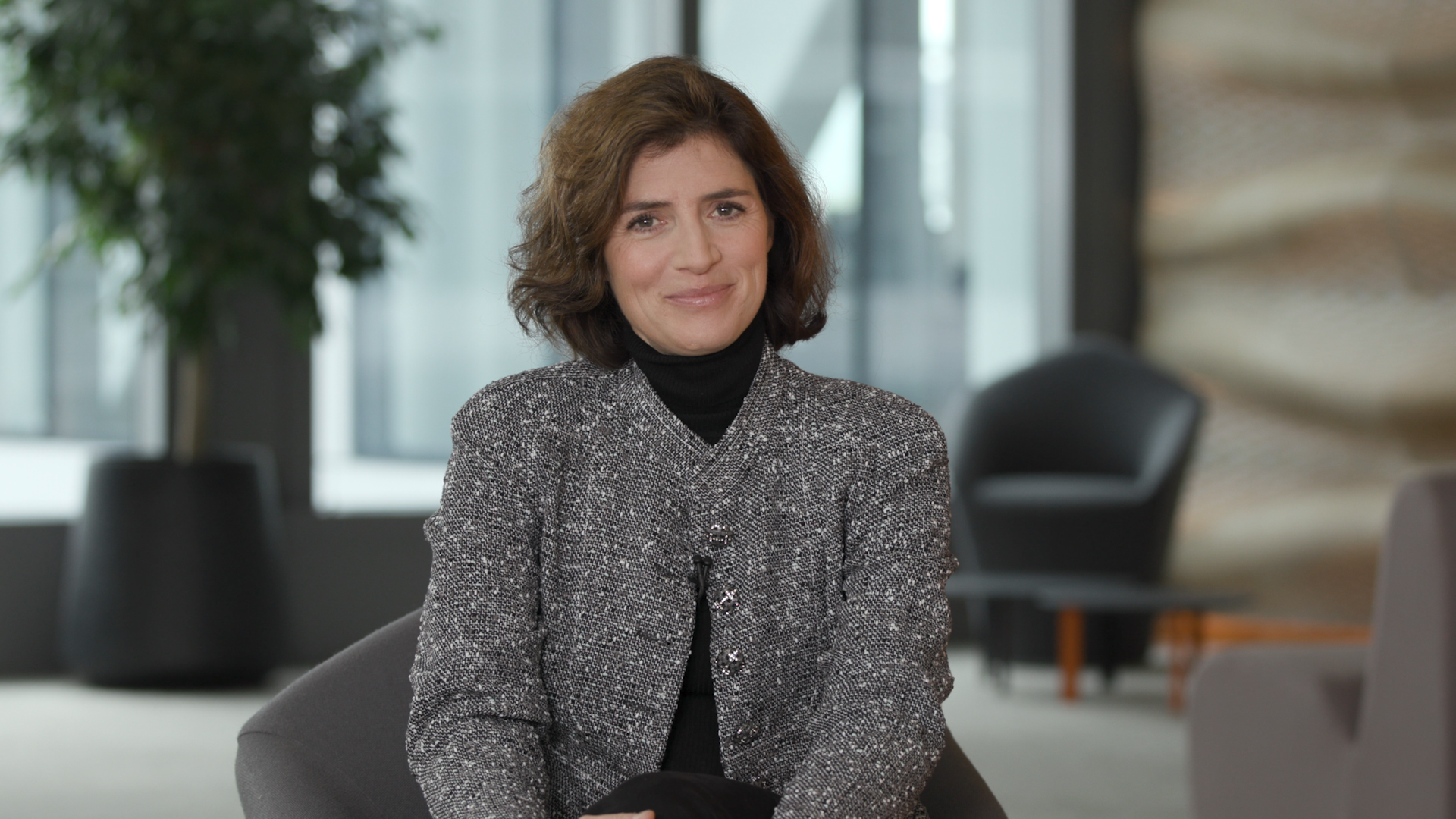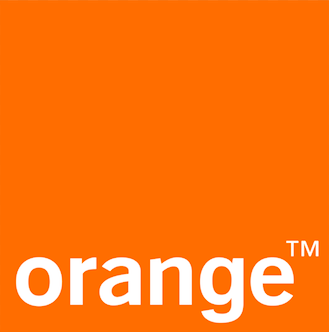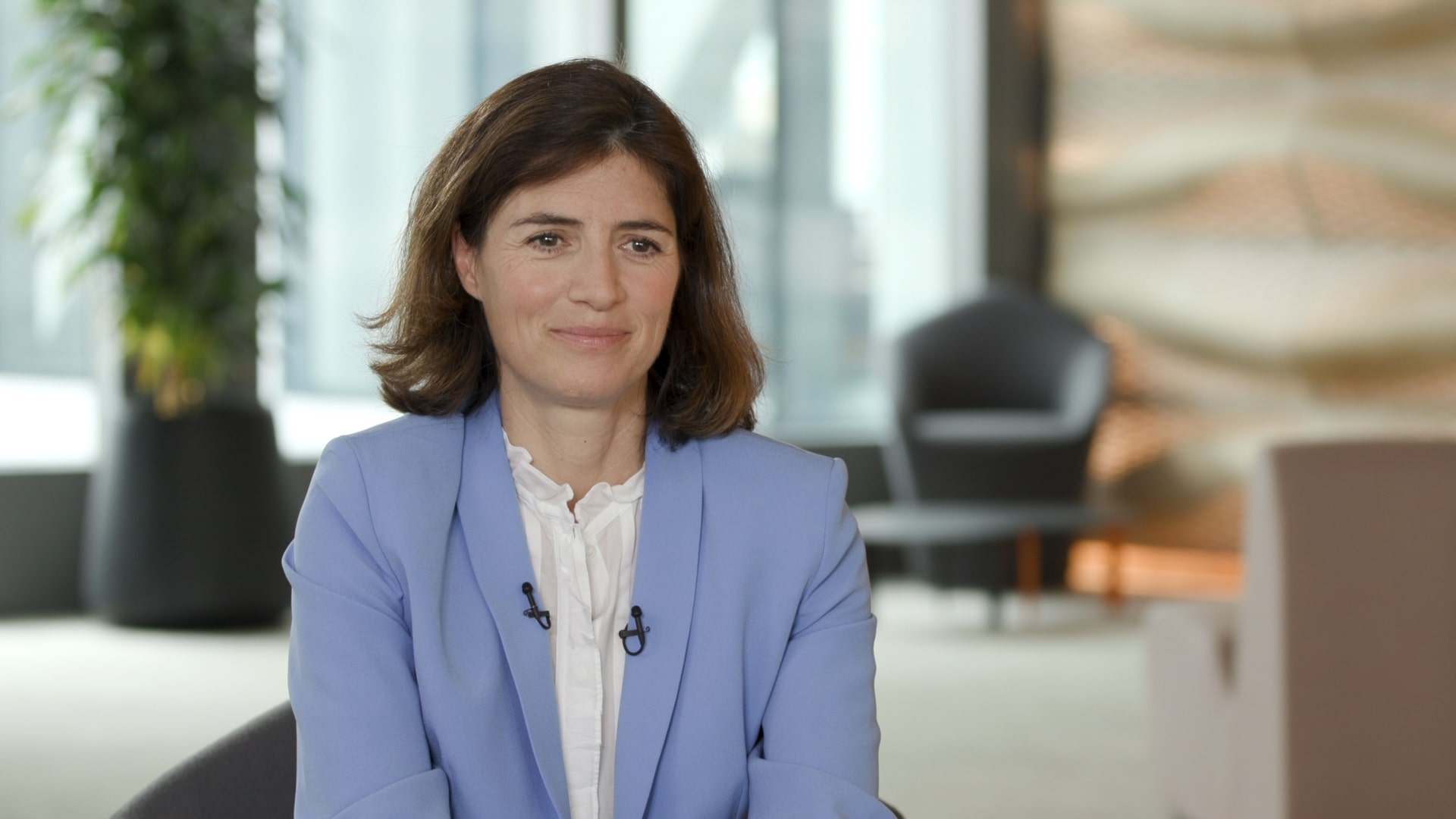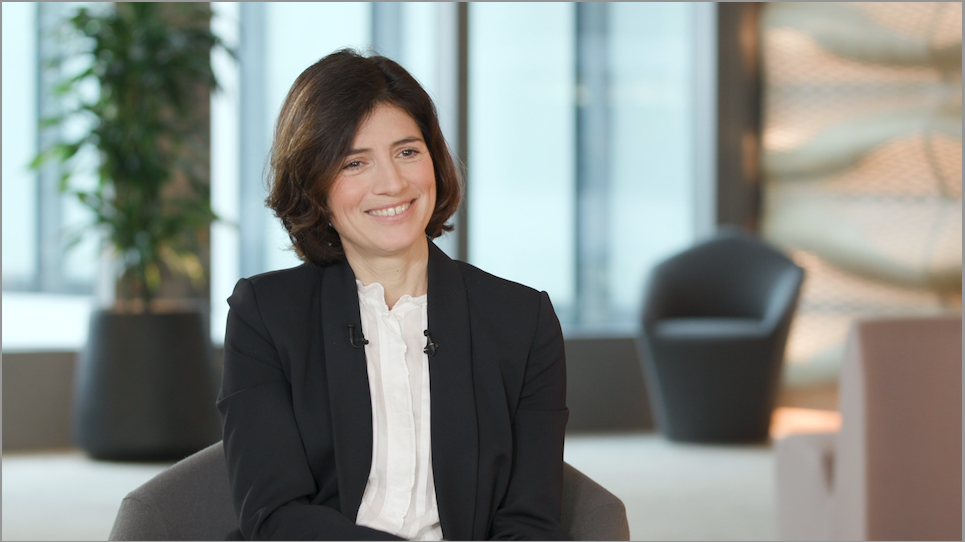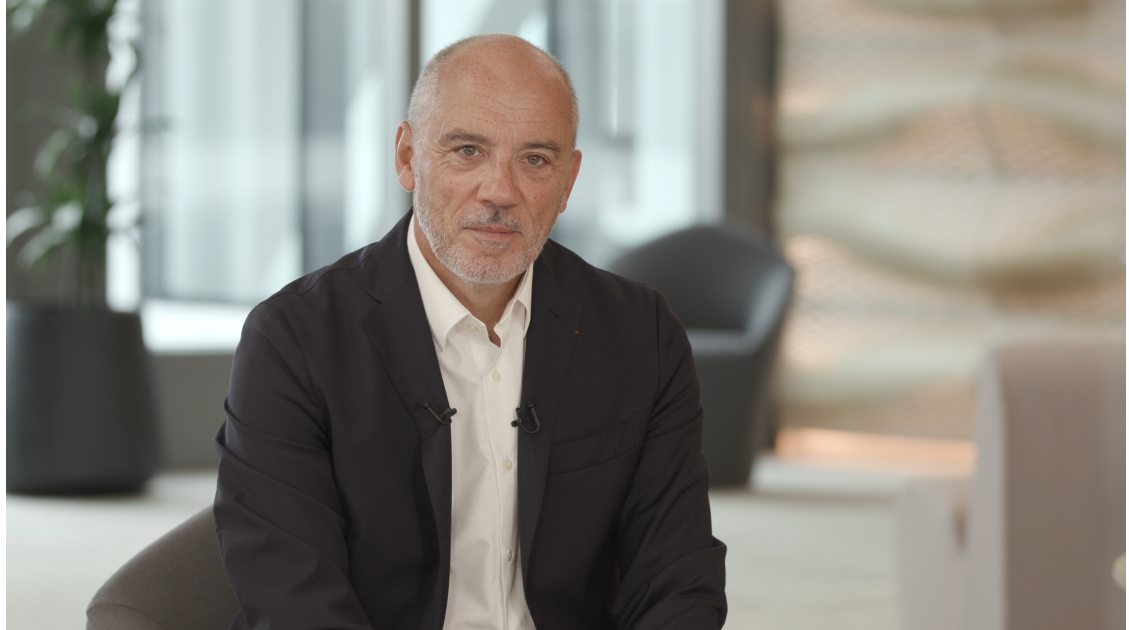EuroBusiness Media (EBM): Stéphane Richard, hello.
Stéphane Richard: Hi, Adrian.
EBM: You are the CEO of Orange. First of all, thank you for hosting this interview in conditions that respect social distancing. You just presented your fourth-quarter results while we are still in an unusual period, and the group is still doing extremely well, as it was during the third quarter. Could you start by reviewing your fourth quarter highlights ?
Stéphane Richard: Of course, but first I would like to express how satisfied and proud I am of all of the group's results and the flawless mobilization of all our teams across the world who made these results possible. As you mentioned, we are in a very particular situation, still strongly affected by the health and economic crisis. During this unusual time, there are several key items to highlight. The first is the group's commercial performance during this past fourth quarter. Let’s start with France. We have recorded a third consecutive record in fiber net adds. Clearly, fiber has been an enormous success. The health crisis and lockdowns we have undergone have only increased the demand for fiber in the French market – to our benefit. We also had a very good quarter in Europe, the best in the past two years in terms of fiber . Then there is Spain. Things have been more difficult in Spain for several quarters. However, since this summer we have seen a truly remarkable turnaround in Orange's commercial trends with fixed and mobile gains back in the green. This phenomenon has even grown over the last quarter, providing us with very solid and resilient revenue for the group. Our positive results were also fed by developping our business in Africa and the Middle East (with record revenue growth of over 8% ), as well as by end-of-year performance in France, slightly positive despite the health crisis. As for B2B, I would like to focus specifically on our two jewels in the IT and Services sector: Cloud and Cybersecurity, which, despite the current environment, have seen outstanding – nearly two-figure – growth for end-of-year 2020. Another major point to emphasize is the work we have done on infrastructure. This was part of our major announcements made at the end of 2019 about expanding our infrastructure (both fixed and mobile). And we succeeded, as we have announced the sale of a 50% stake in and joint control of Orange Concessions, the special purpose entity we created for fiber development in rural areas (called RIP). Moreover, the valuation was frankly exceptional. We have also made progress on carving out the two TowerCos that we created in France and Spain under the name Totem. Project Totem has also accelerated rapidly in recent months. Finally, everything is going fairly well based on our – very closely tracked – organic cash-flow indicator. Our investors pay close attention to our ability to generate organic cash flow and in 2020, despite the health crisis that we have been going through, we generated 2.5 billion euros in organic cash flow – significantly above the 2.3 billion euro objective that we set. This figure does not include the 2.2 billion euro reimbursement that we collected at the end of the year for a tax dispute that we won.
EBM: What is the major trend of this quarter, and most importantly, which country or activity helped the group most to withstand the ongoing crisis?
Stéphane Richard: First, let's do an overview of our revenue. The group's revenue is virtually stable: for the fourth quarter -0.2%, and recorded moderate revenue growth over 2020, at + 0.3%. We are very happy with this figure considering the historic health crisis we went through in 2020 and its economic consequences. We clearly succeeded in improving revenue, however moderate it may be. Still, it increasedover the year, despite massive impacts from the crisis. I’ll just mention two impacts here, first roaming – there hasn't been any travel and hardly any travelers, so roaming revenue was hit. That’s 300 million euros in negative impact. Second, equipment sales fell by 300 million euros due to extended store closures in many countries. This means we had a negative impact of 600 million euros related to the crisis. Despite that, we still managed a slight increase in revenue. How so? There were two big drivers. One is France and the other, Africa, representing 300 million euros each. These two drivers made up for the declines we recorded, in part due to the crisis, and in part a little beyond it. Spain, which has been in a very aggressive, and competitive environment for nearly two years (all operators were under pressure in Spain), showed a decrease in revenue of around 300 million euros. Then there was the Enterprise segment, that felt a stronger impact than other group divisions. The rest of Europe, as a whole, had a very slight loss over all of 2020, and so it stayed in the green, in terms of revenue, primarily thanks to France and Africa.
EBM: Moving on now to EBITDAaL, which is slightly down for reasons that are entirely understandable.
Stéphane Richard: I just mentioned roaming: we have seen a 300 million impact on revenue, and nearly as much on EBITDAaL. Roaming revenue has a marginal contribution and is therefore very high in EBITDAaL. This is less so for equipement sales. Then there are many direct costs in connection with the COVID crisis. Despite these adverse impacts, as powerful as they may be, 2020 EBITDAL was only slightly lower – around 1% – showing extremely positive development and resilience in the profitability of our operations. First in the MEA countries – where EBITDAaL saw two-figure growth, which is still quite remarkable – and in Europe, where except for Spain, we managed to grow EBITDAaL around 2%. Of course these performances were mitigated by the situation in Spain (which saw a drop in revenue and the same drop in EBITDAaL, as expected). We were at -13% due to a decrease in average revenue per user which automatically resulted in lower EBITDAaL. Then there was also just as strong a decrease in OBS, the B2B division (-15%), very strongly linked to COVID impacts.
EBM: Could you mention some geographical highlights, both good and bad?
Stéphane Richard: Let’s start with our current points of concern, Spain comes first. Spain has been wonderful for the group in the past. We have had years of very strong growth and revenue. We built the second-largest Spanish operator and have made a lot of progress in ten years. Now this market has entered into a new cycle. New competitors have appeared, consolidation operations have triggered solutions, there were just so many stepping stones for additional competitors to enter this market. It is a highly fragmented market, sharply trending towards the low-cost end in a country in crisis. Nevertheless, as I have been saying since this summer, we are experiencing a real turnaround in commercial sales. I have appointed a new manager for Spain. Jean-François Fallacher proved himself in Poland where he stepped into a situation similar to that of Spain today and carried off a spectacular turnaround. He launched several structural initiatives which got Poland moving – still today – in a very positive direction. Jean-François is now working on a turnaround plan for Spain, involving our price strategy, market positioning, and the brands we use. We are also starting to simplify our structure. There are also huge initiatives in IT, work processes, and B2B. We have a great opportunity ahead of us in Spain. I think it will take at least 18 months before we can see tangible results of this turnaround in both revenue and EBITDAaL. I am, however, very confident in the abilities of our new CEO and his team to succeed. Of course, we need to be patient, as we can hardly expect a good year 2021 in Spain, particularly in regards to EBITDAaL. This is clearly the largest negative. Let's move on to positive aspects. First, Africa and the Middle East. I mentioned growth in business and revenue. EBITDAal increased by 10% in 2020, and 18% if you consider performance over 2 years. For those wondering about profitability, the abundant growth we have seen in Africa is the best demonstration we can make. Not only have we seen growth, but we have improved our returns. The average profitability of our activities in Africa today is higher than the roup average. So we are seeing not just growth in Africa, but also profitability. The leading driver of this growth is data and mobile internet, as our mobile network is key in Africa. Today we have 4G rolled out nearly everywhere in Africa and have seen phenomenal growth in clients who use 4G, and thus mobile internet. Next, there is Mobile Banking. Over 2020, Orange Money has crossed the 500 million euro revenue threshold, becoming a very significant contributor to our activities in Africa.
EBM: How about infrastructure, and specifically Orange Concessions and TowerCo?
Stéphane Richard: On Capital Market Day in 2019, we announced a double project. First, to organize our fiber infrastructure in France, in such a way that the deployment in rural areas could benefit, at least in part, of our alliance with financial partners to optimize CAPEX and take advantage of growth opportunities in these RIP regions. That’s the Orange Concessions project. This project has been completed, as we have signed off on this transaction with a remarkable valuation – 600 euros per fiber connection. I think this is the highest level ever reached in the French market. That’s as far as fixed lines are concerned. The second initiative we announced was about creating one or two TowerCos. The first TowerCo is a European project, which will be completed in cooperation with national entities. This is a very lengthy, onerous project as it requires carving out these assets, and then organizing all of the contractual, legal, operational, and economic relationships between these TowerCo entities and the operators in each country. This timeconsuming work was nevertheless completed in record time and I want to commend all the teams involved both at the group and country level for it. This carve out is now progressing very well in France and Spain. This European TowerCo will be called Totem. It will be built starting with a large French entity, and a smaller Spanish entity. In addition to streamlining our operation and to improving the way we manage our infrastructure, this project will be a new tool in the Orange toolbox for conquest and growth. I am convinced that change is on its way in the infrastructure market. Consolidation is to be expected at the European level and it is essential for Orange to take part in it. Now that we have this new tool, we intend to use it, track it closely, and watch the various moves going on in the market. We have projects and are going to play a tactical, highly pragmatic game, using these TowerCos also in the financial and capital flexibility they grant us today, to play a key role in the consolidation to come.
EBM: What can you tell us today about your plan to overhaul costs, called ScaleUp?
Stéphane Richard: ScaleUp is a program, project, a goal that I announced on Capital Market Day in 2019, clarifying that it was an ambition, not yet a program. From that ambition, we projected 1 billion euros of net savings in the group’s cost structure. We had already identified a small part of it, but it was still an ambition without a firm commitment from the company and management. Now, in a little over a year, we’ve transformed this initial ambition into a program with an objective. We put in place an entire organization to ensure that we would achieve that billion euros in savings by 2023, on a base of about 14 billion euros of indirect costs in the group. So we launched this program. We built a team, there are relays in every country, so we moved into the industrial phase, to implement this ScaleUp program, which is now a part of the objectives of the entire management team. We’re going to give a certain amount of information-I don’t believe we’ve ever given as much up to now, about the underlying, the substance, the composition of these costs. And also the specific issues we’re going to work on within ScaleUp. I’ll go over some of them quickly. First, there is obviously the work aspect, the work force, staff, organization of the work and the cost of work. What I can say is that the health crisis, including the lockdowns, the massive teleworking, opened us up to new possibilities, and no doubt real opportunities too. Because now we see in many places that many people and many of the group’s lines of work are wanting to work a little differently, to be perhaps together less geographically all the time, in large sites that are expensive, to build, maintain, etc. So the proportion of telework is going to be different, and work organizations are also going to adapt. Overall, this crisis is also an opportunity to somewhat accelerate the transformation of some ways of working within the company. Then there’s an aspect that’s more about the demographic structure of society in France. We had a lot of retirements the last few years, which allowed us to replace just a small portion of them and as a result make some already substantial savings on the cost of the work force in France allwhile giving proper pay increases over the last few years, we nevertheless saved 500 million euros in salary costs in France over the last five years. In the coming years, the natural attrition will continue, but we want to initiate discussions with employee representatives to see the conditions in which we can accelerate this natural attrition, by targeting a group of employees who are near retirement age and by trying to correct some historical imbalances in the company, especially between the headquarters and support functions- there are several here in France - and those that are client-facing. With one simple idea - we want to keep the maximum capital and strength in front of the client, because that’s what makes for a quality client experience; and meanwhile, try to optimize the other functions that are very important, and which I am persuaded we can do better, in terms of efficiency. So the whole operation will roll out over a period of three years, 2020-2023, and this will be one of the important components of the ScaleUp cost savings plan.
EBM: Could you give us further explanation about your cash flow management after the anticipated impact of the use of funds received for the exceptional tax refund of 2.2 billion euros?
Stéphane Richard: You’re right to ask the question, because it’s good news to have received a refund of that level. First of all, we’re glad we were tenacious, and never gave in. We are sometimes suspected of being somewhat complacent with the French government, because it is, after all, our main shareholder. But this lawsuit showed that we’re capable of really getting into the fight, and in the end received 2.2 billion euros. That’s an enormous refund to come out of the State’s wallet. So for everyone who had questions about this issue, I think this is an episode that should be highlighted. That said, this significant amount should not hide the reality of the underlying operational performance. Also, it has to be seen as an opportunity for us to pick up the pace in certain areas, to make some perhaps specific investments which we know will create a lot of value for our shareholders in the future; that was sort of the philosophy of the breakdown of the 2.2 billion euro tax refund. I think it’s important, when looking at 2021, to measure our commitments excluding the impact of that 2.2 billion. I’m sure you agree with me, it’s very good news, a one-shot event, so we need to look at what’s beyond and what we’re capable of doing. Doing so, we realize that the commitment we’re making in 2021 is to generate organic cash flow that will be over 2.6 billion euros, which is higher than the 2.5 billion in 2020. So we’re right in line with our strategic plan. This is excluding the impacts of the tax refund. In addition, this target of 2.6 billion euros will only be achievable - and we are, naturally, confident about our ability to achieve it - if we manage our capex with discipline, which we are committed to doing, and which we have also substantially demonstrated in 2020. The 2.2 billion euro refund is also an opportunity for us and the reason we’re going to use part of that amount to finance the transformation plan for France - I mentioned the main points earlier; the positive impact on our profitability will be felt a little in 2021, and especially in 2022 and beyond. We’re also going to use part to finance our employee shareholder plan, called URP. That will offer the group’s employees the opportunity to buy shares and share in the group’s value creation. Employee shareholding is one of the rare methods at our disposal for us to somewhat align everyone’s interests, meaning our shareholders and our employees. So that’s why I want to do it. I think it was important, when we had this positive event, to provide this employee shareholder plan, which is basically a strong long-term value creator for the company and all of its stakeholders. Then, we’re going to use a small part of this amount to make several very targeted additional investments, primarily in France, and a little less in Africa, especially in terms of co-financing, because with these types of targeted investments, we are certain to achieve a very high return. It doesn’t mean abandoning the discipline that we want to hold ourselves to on investing; it’s about using this refund opportunity to do a little more in some very targeted sectors in which we know how to achieve a very high return. When we take all of that into account, and I know it’s a bit complicated, I apologize to our shareholders, but 2.6 billion is the organic cash flow target, excluding the tax refund. When we take into account some negative effects, like, for example, the employee shareholding offer on 2021 EBITDAaL, that translates into a target of 2.2 billion euros for 2021, which corresponds to the 2.6 billion I referred to earlier. Here’s what I can say about 2021, Adrian. Perhaps the most important point is to look at the medium term. A year ago, we set an ambitious target, which was to achieve organic cash flow in the range of 3.5 to 4 billion euros by 2023 at the end of this first phase of the plan we committed to. I can now truly confirm that this target is our objective, to which we are fully committed, and I would even say that as 2021 begins, I am considerably more confident in our ability to achieve that target of 3.5 to 4 billion euros than a year ago, through the work that has been done and also by the support that the tax refund is going to provide in the coming years. So I will reiterate here, to everyone, this objective to generate organic cash flow of 3.5 to 4 billion euros in 2023, which is practically double what we generated a year ago.
EBM: Stéphane Richard, we are coming to the end of this interview - a final word?
Stéphane Richard: I believe that 2020 was an extraordinary year, perhaps not in the most positive meaning of the term, but an unprecedented year, unexpected, that subjected everyone to major challenges for our personal lives, family lives, professional lives, for the companies we deal with, and for all of our projects. Perhaps it made us recognize our vulnerability and ultimately the fragility of the world we live in. Many sectors have been profoundly impacted by what has happened. In our telecom industry, we’re lucky to have provided companies, enterprises, families and individuals a service that allowed them to overcome the adversities while maintaining a connection with others and their families, but also still able to work from home, be educated from home, participate in the economy, etc. The main conclusion I draw from 2020 is that we have demonstrated our social and economic utility, and I would even say it’s more than utility - it is now a service that is critical, vital in the life of modern societies. We already knew that, but I think 2020 really demonstrated it. Faced with this need, I believe that the company reacted remarkably, above all because it was highly engaged in all its units and everywhere in the world. It was also very agile, and able to adapt in several days to radical changes in the way it operates: I am thinking especially about teleworking; we had more than 100,000 employees that began teleworking in the span of a few days. Lastly, we ended this year with an economic profile that is still very solid, with revenues slightly higher - it’s symbolic, but very important; and finally, very deep and structural improvements in our business lines. I find that it’s nonetheless a great collective satisfaction that we can share among ourselves, but also with all our shareholders, to have been able in this singular year of 2020 to achieve these results. Perhaps a last word in reference to the issue of reinstating our dividend. I said in the summer of 2020 that my personal objective and that of our team was to consider, as soon as possible, a 70 euro cent dividend that seemed to me to correspond to the quality of our performance and a fair return to our shareholders. I was able to obtain the commitment of the Board to do it in Fall 2020, and since we had the good news about the tax refund, now we even have the potential to increase it by 20 eurocents, in a one-off manner, which means that in total, 2020 will not only allow us to distribute 70 cents, which I think is the fair level for our income, but also to offer 20 additional cents to our shareholders, which I am delighted about. So to summarize, a difficult year of course, many challenges, many operational challenges, an acceleration of changes, many opportunities as well, and an extremely good position now for Orange to meet the challenges of the coming years, and implement our 2025 strategic plan.
EBM: Stéphane Richard, Chairman and CEO of Orange, thank you very much.
Stéphane Richard: Thank you.

